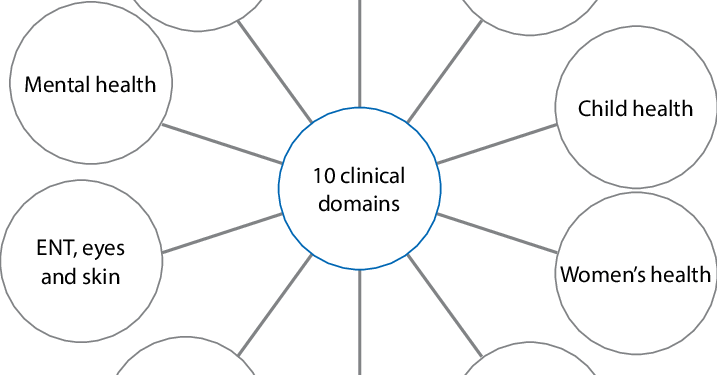Delving into the realm of primary care physicians for family healthcare, we uncover the pivotal role these professionals play in ensuring the well-being of families. From preventive care to fostering long-term relationships, primary care physicians are integral to the health of every family unit.

Importance of Primary Care Physicians for Family Healthcare
Primary care physicians play a crucial role in promoting family healthcare by serving as the first point of contact for individuals of all ages. They provide comprehensive and continuous medical care to families, focusing on preventive care, managing chronic conditions, and addressing acute illnesses.
Services Offered by Primary Care Physicians for Families
- Regular check-ups and screenings: Primary care physicians conduct routine examinations to assess overall health and detect any potential issues early on.
- Management of chronic conditions: They help families manage conditions such as diabetes, hypertension, and asthma through personalized treatment plans.
- Treatment of acute illnesses: Primary care physicians address common illnesses like colds, flu, infections, and minor injuries.
- Vaccinations: They provide immunizations for children and adults to prevent various infectious diseases.
- Referrals to specialists: When necessary, primary care physicians refer patients to specialists for further evaluation and treatment.
Benefits of Having a Primary Care Physician for Overall Family Well-being
- Continuity of care: By having a primary care physician, families receive consistent and coordinated healthcare over time.
- Personalized care: Primary care physicians develop relationships with their patients, understanding their unique needs and providing individualized care.
- Promotion of preventive care: They emphasize preventive measures to maintain health and well-being, reducing the risk of future health problems.
- Cost-effectiveness: Regular visits to a primary care physician can help prevent costly emergency room visits and hospitalizations.
- Health education: Primary care physicians educate families on healthy lifestyle choices, disease prevention, and management of chronic conditions.
Qualifications and Training of Primary Care Physicians
To become a primary care physician, individuals must undergo extensive education and training to acquire the necessary skills and knowledge to provide comprehensive family healthcare.
Educational Requirements
Primary care physicians typically complete a bachelor's degree followed by medical school. After obtaining a medical degree, they must complete a residency program in family medicine, internal medicine, or pediatrics. Some primary care physicians may also choose to pursue additional fellowships to specialize further.
Training Process
During their residency, primary care physicians receive hands-on training in diagnosing and treating a wide range of medical conditions. They learn how to manage chronic diseases, provide preventive care, and address the unique healthcare needs of individuals across the lifespan.
This training equips them with the skills to offer holistic and patient-centered care to families
.
Skills and Knowledge
Primary care physicians need a diverse set of skills and knowledge to effectively care for families. They must have a strong foundation in general medicine, including understanding common illnesses and conditions. Additionally, they need excellent communication skills to build relationships with patients and address their concerns.
Primary care physicians also need to stay up-to-date with the latest medical research and guidelines to provide evidence-based care.
Building Trust and Long-Term Relationships
Establishing trust between primary care physicians and families is crucial for ensuring effective healthcare delivery. Trust forms the foundation of a strong patient-physician relationship, leading to better health outcomes and patient satisfaction.
Strategies to Develop Long-Term Relationships
Primary care physicians can employ various strategies to cultivate long-term relationships with their patients:
- Active Listening: Taking the time to listen attentively to patients' concerns and actively engaging in conversations can help build trust.
- Empathy and Compassion: Demonstrating empathy and showing genuine care for patients can foster a sense of trust and understanding.
- Consistent Communication: Regularly communicating with patients, providing updates, and following up on their progress can strengthen the bond between the physician and the family.
- Respect for Patient Preferences: Respecting patients' values, beliefs, and preferences is essential for building trust and promoting a collaborative relationship.
Importance of Trust and Rapport for Better Health Outcomes
Trust and rapport between primary care physicians and families play a vital role in improving health outcomes:
- Improved Patient Compliance: Patients are more likely to adhere to treatment plans and recommendations when they trust their physician, leading to better health outcomes.
- Early Detection and Prevention: A strong patient-physician relationship built on trust can facilitate early detection of health issues and promote preventive care measures.
- Enhanced Patient Satisfaction: Patients who trust their primary care physician are more satisfied with their healthcare experience, leading to better overall well-being.
Preventive Care and Health Promotion
Primary care physicians play a crucial role in preventive care and health promotion for families. By focusing on prevention, they can help individuals maintain good health and reduce the risk of developing chronic conditions.
Preventive Measures Recommended by Primary Care Physicians
- Regular screenings for conditions such as high blood pressure, cholesterol, and diabetes
- Immunizations for children and adults to prevent illnesses
- Encouraging healthy lifestyle habits such as exercise, balanced diet, and stress management
- Screenings for cancer, including mammograms, colonoscopies, and skin checks
Significance of Regular Check-ups and Screenings
Regular check-ups and screenings recommended by primary care physicians are essential for early detection of health issues. By identifying problems in their early stages, interventions can be implemented promptly, leading to better health outcomes. Preventive care measures can also help in reducing healthcare costs in the long run by preventing the progression of diseases.
Epilogue
In conclusion, primary care physicians stand as pillars of support for families, offering essential services, building trust, and promoting preventive care. Their dedication to the overall well-being of families underscores the significance of their role in healthcare.
Answers to Common Questions
What services are typically offered by primary care physicians for families?
Primary care physicians provide a wide range of services, including routine check-ups, vaccinations, management of chronic conditions, and acute care for illnesses.
How do primary care physicians build long-term relationships with their patients?
Building trust, effective communication, personalized care, and continuity of care are key strategies primary care physicians use to develop lasting relationships with their patients.
What preventive measures do primary care physicians recommend for different family members?
Primary care physicians may recommend vaccinations, screenings for various conditions, lifestyle modifications, and health education tailored to each family member's needs.













